Iranian kiwi is mainly produced in the north of the country, in Mazandaran province. Flamingo Eurasia company provides kiwi based on your desired weight and caliber with the best quality directly from gardens. Packaging for export is done in high quality cartons and stable baskets so that the product is not damaged during loading.
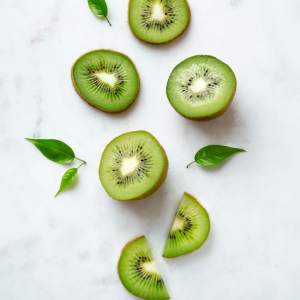
Persian kiwi harvest time

Kiwifruits are among the fruits that must be harvested at a certain precise time. If the kiwis are harvested before they ripen, they will be very firm and sour, and if they are harvested after ripening, they will be very soft and rotting soon. To find out the right time to harvest, the amount of Brix in kiwi should be measured by the Brix meter at the appropriate time of harvest (when the fruit sugar has reached the right limit), which usually starts in October. The Brix allowed for Kiwi is at least 6.2, which should eventually reach 9.5 in stores.
Supply time: oct- nov- dec- jan- feb
Brix meter (Brix refractometer)
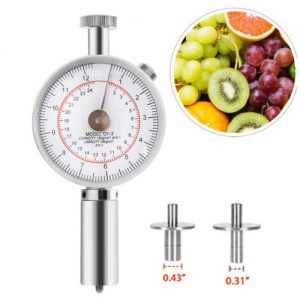
Brix shows the amount of sugar in a liquid. One of the ways to detect ripening of the fruit is brix. The gardener measures the amount of the Brix in the fruit with a refractometer and if it is within the approved range attempts to harvest the fruit from the tree.
Cold storage for Persian kiwi
Kiwifruits must be cooled at 0-2ºC and preserved in storerooms with relative moisture around 95%. The use of controlled atmosphere enables their storage for up to 5 months.
Under optimum storage conditions at a temperature of 0ºC and +2ºC and a relative humidity of 90 to 95%, kiwis can be stored for between 3 and 5 months. Gas control is another essential activity in cold stores. Increasing levels of CO2 results in better retention of firmness. Reduction of the O2 level inhibits ripening. For kiwis, the most important aspect under controlled atmosphere conditions is to use ethylene adsorbers to keep the ethylene level as low as possible.
Ethylene
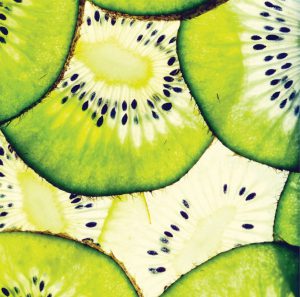
Ethylene gas speeds up the ripening and activates the changes in the color, texture, and flavor of the fruit. Kiwi is sensitive to Ethylene. It is emphasized that due to the sensitivity of kiwi fruit to ethylene should be tried not to be exposed to Ethylene in the later stages of harvesting and storage.
Iranian kiwi should not be transported and stored with other fruits that produce Ethylene, such as apples, pears and bananas. Because it softens the fruit and effectively limits the storage and sale period of fruit.
The amount of Ethylene should be monitored regularly. Continuous ventilation during maintenance reduces ethylene levels.
Temperature
Persian kiwi suffers Frost at temperatures below -0.5. The optimum temperature for storing kiwi is 0-2°C.
Increasing the temperature from zero Celsius to 2 Celsius degrees will double the breathing action and almost halve the maintenance period. Also, the fruit will soften at 2 degrees Celsius faster than zero degrees Celsius.
Sorting & packing
Before packaging kiwis must be graded. The grading process is usually based on the weight and size of the fruits. All fruits that are frozen, rotten, immature and spotty must be separated from healthy fruits by experienced people or by special devices.
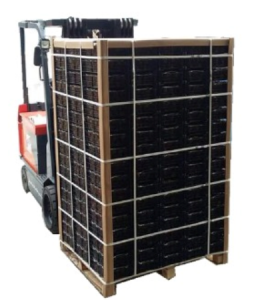
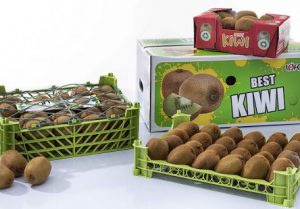

Transportation
Kiwi is very sensitive to impact and pressure, so its cargo handling requires more accuracy. Damage to the fruit quickly leads to spoilage.
The required refrigeration temperature must be monitored and maintained continuously at all stages.
the cargo also must be protected from moisture because otherwise there is a risk of premature spoilage.
For transportation of kiwifruits, refrigerated trucks or refrigerated containers are necessary. contract with the driver and a commitment to the thermograph is very important, because a thermal shock will ruin the fruit. It`s necessary to work with a committed and more expensive driver to make sure that he didn’t turn off the car or run out of gas.
Persian kiwi nutrition

- Calories: 64
- Carbs: 14 grams
- Fiber: 3 grams
- Fat: 0.44 grams
- Protein: 1 gram
- Vitamin C: 83% of the Daily Value (DV)
- Vitamin E: 9% of the DV
- Vitamin K: 34% of the DV
- Folate: 7% of the DV
- Copper: 15% of the DV
- Potassium: 4% of the DV
- Magnesium: 4% of the DV
Transportation of perishable fruits faces various challenges and requires proper management and skilled professionals. Flamingo Eurasia company has been established in order to make your work easier and specialized in this field.
Flamingo Eurasia specialists examine different methods of transportation and choose the best method according to the type of goods and carefully monitor it until the moment of delivery to the customer.